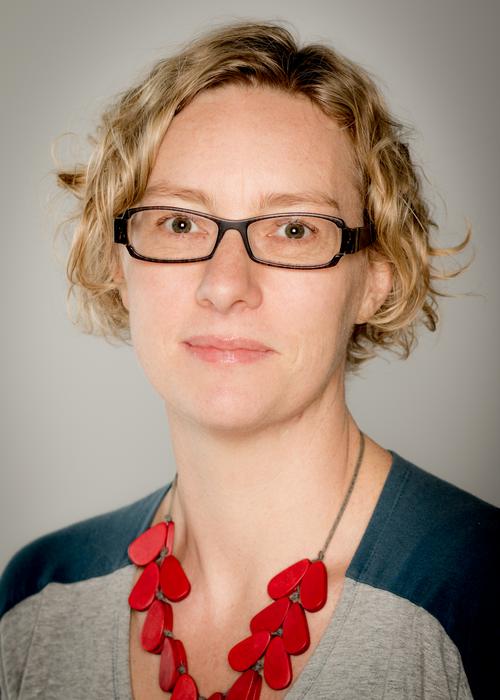The well off are contributing more than their fair share of greenhouse gas emissions from transport in New Zealand, driving more frequently and over longer distances, researchers have found.

Credit: University of Otago
The well off are contributing more than their fair share of greenhouse gas emissions from transport in New Zealand, driving more frequently and over longer distances, researchers have found.
The study of New Zealanders’ travel habits found total weekly travel emissions were 79 per cent higher for people in affluent areas compared to those living in lower socio-economic areas.
The researchers analysed data from the New Zealand Household Travel Survey between 2015 and 2018, looking at the day-to-day travel patterns of 9,861 Kiwis over a period of a week. The information was compiled from diaries kept by participants and data from GPS devices.
It is understood to be the first population-based study examining area-based social inequities in household travel in Aotearoa.
The research is published in the international journal, Travel Behaviour and Society.
Lead researcher Associate Professor Caroline Shaw from the Department of Public Health at the University of Otago, Wellington, says people from the most affluent areas were nine per cent more likely to have travelled by motor vehicle and 20 per cent more likely to have walked to a destination in the week before being surveyed than those living in the lowest socio-economic neighbourhoods.
“As well as differences in the use of specific types of travel there were differences in distance travelled. People living in the most affluent areas travelled on average 120 km or 72 per cent further each week than those who lived in the most deprived areas. The extra kilometres were clocked up mostly in motor vehicles (97 km), and from flying (20 km).
“Over a year this translated into an additional 6,266 km of travel (the majority from private vehicles), and 1.4 tonnes of travel-related greenhouse gas emissions by each adult who lived in the most affluent neighbourhoods, compared to those living in the most deprived areas.”
Associate Professor Shaw says people living in affluent areas were more likely to own a car and also owned more cars on average, with the study finding 74 per cent of those living in the most affluent neighbourhoods owned two or more cars compared to 48 per cent in the most deprived areas.
The more affluent travelled more for all purposes, including for paid work, unpaid work and leisure.
About one in 40 (2.4 per cent) of those in the wealthiest neighbourhoods reported taking a plane trip in the last week, compared to 0.1 per cent of those living in the most deprived areas. That is, people from the most affluent areas were 24 times more likely to have flown in the survey week compared to those living in the lowest socio economic neighbourhoods.
Emissions from domestic air travel were the second largest source of greenhouse gas emissions for the well off, representing 10 per cent of their mean weekly emissions.
Overall, the top 20 per cent of people with the highest household travel greenhouse gas emissions were responsible for around 55 per cent of the total household travel weekly emissions. The bottom 60 per cent of people (those with the lowest emissions) were responsible for only 20 per cent of these emissions.
Associate Professor Shaw says the study highlights the lack of fairness in New Zealand’s transport system.
“The more affluent are privileged by policies which promote car dependence. They drive further each week, they own more cars, and they spend more time travelling – mostly in their cars. Policies which promote road building are disproportionately benefiting them.
“However, this carbon intensive lifestyle is unlikely to be improving their wellbeing. The wealthiest Kiwis spent almost three more working weeks (104 hours) in their cars annually compared to the least affluent.
“It’s clear our transport system is not working very well for anyone.”
Associate Professor Shaw says New Zealand needs to move away from car dependency, and create cities and towns where people do not have to own vehicles to participate in society.
“This means going hard on policies and infrastructure to support other modes of transport, including public transport, walking and cycling, as well as increasing our housing density. At the same time, we also need policies to discourage transport greenhouse gas emissions by the highest emitters.”
She says making the transport system fairer would help bolster public support for climate policies as New Zealand works towards its goal of achieving net zero greenhouse gas emissions by 2050.
“Building an understanding of social inequities in transport emissions will help in developing more effective policies to support New Zealand’s journey towards a low carbon transport system.
“These could include measures like making parking more expensive for heavier vehicles, such as has recently been introduced in Paris, imposing levies on frequent flyers, and putting constraints on air travel advertising.”
Journal
Travel Behaviour and Society
DOI
10.1016/j.tbs.2024.100820
Method of Research
Survey
Subject of Research
People
Article Title
Socioeconomic inequalities in greenhouse gas emissions from household travel in Aotearoa/New Zealand
Article Publication Date
1-Oct-2024




